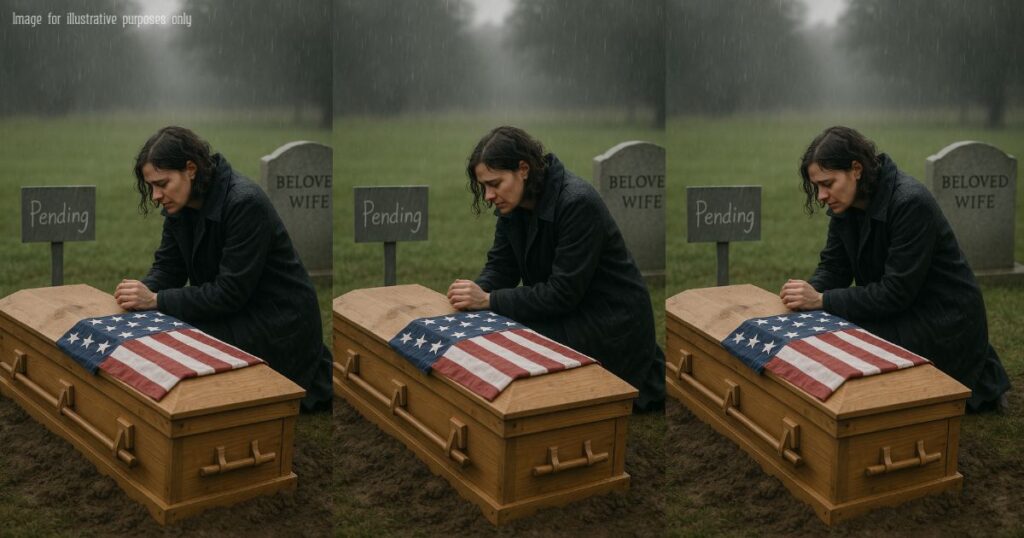I drove six hours to pick it up myself.
Didn’t trust the mail anymore. Didn’t trust the system.
The VA warehouse was gray and joyless, tucked behind a strip mall outside Dayton. They had me sign three forms just to hand me a box smaller than a shoebox.
Inside:
- One weathered wallet
- A pack of unopened Marlboros
- A creased photo of Mama from 1972
- And the cassette. Labeled: “For Pumpkin”
No letter. No envelope. Just black plastic and years of dust.
The kid at the counter looked like he wanted to say something. I didn’t give him the chance.
Back home, I dug out Daddy’s old tape player from the garage.
Wiped off the grime. Fed it double-A batteries.
I pressed play.
The tape hissed. Then:
“Hey there, Pumpkin…”
His voice.
My knees buckled. I sat right down on the kitchen floor.
“I don’t know if you’ll ever hear this,” he said, “but if you do, I guess that means I didn’t make it to see your next birthday. Or maybe I just chickened out and never found the right time to say this to your face.”
I held my breath.
Every crackle of static felt like thunder in my chest.
“You were the best thing I ever did right,” he continued. “I know I wasn’t always easy to live with. The war did things to me. The mill did the rest. But you… you made me softer. You made me try.”
Silence for a moment. Then a soft strum. The old guitar.
He played Mama’s favorite song. That creaky, twangy version of “You Are My Sunshine” that made her cry every single anniversary. I wept until I couldn’t see.
He talked for twenty-seven minutes.
Talked about how proud he was of me.
About how much he missed Mama.
About the regrets he carried, like medals nobody pinned on.
And then—
“I know you’re mad at the country,” he said. “Sometimes, I was too.”
“But don’t let the flag become the enemy. It ain’t the cloth. It’s the people holding it up. Some of ‘em forget. Some of ‘em don’t know better. But you—you do.”
Then, quieter:
“If you’re listening to this… keep showing up for the ones like me. Don’t let us disappear.”
The tape clicked.
End of side A.
I sat there a long time.
It wasn’t forgiveness. Not yet.
But it was… a direction.
The next morning, I called the VFW hall.
“I want to set something up,” I said.
“A wall. For the forgotten ones.”
We started small—just me, three old vets, and a borrowed staple gun.
I printed out names. Faces. Stories.
Not headlines—lunchbox lives.
Men who drove school buses after Korea. Women who cooked for firehouses after Desert Storm. Kids who came home from Iraq and never quite made it back to themselves.
People brought candles. Letters. One woman brought her husband’s boots. She set them under his photo and whispered, “He never stopped marching.”
A reporter showed up one night. I didn’t mean to talk much, but he asked the right question:
“What are you trying to say with all this?”
I pointed to Daddy’s photo.
“To me, he was more than a folded flag. And I want the world to remember that.”
That interview got picked up online.
A week later, we had 200 submissions.
Then 1,000.
From all over the country.
So we built a site: The Unfolding Project.
Stories. Photos. Scans of letters. A digital space where people could write what the paperwork always left out.
I got messages from soldiers, daughters, grandkids. Some just wrote, “Thank you for saying it out loud.”
One afternoon, I got a letter in the mail.
From the same VA center that lost my father’s belongings.
Inside was a photo of the folded flag. A typed apology. And a post-it note:
“Your father’s story helped us revise our storage process. Thank you.”
I didn’t cry.
But I did go outside.
For the first time in two years, I raised the flag.
Let it fly—not for a government, but for a promise. One that still needs fighting for.
And sometimes, just before dusk,
when the light hits the porch just right,
and the wind rolls in soft from the hills,
I hear it.
That same creaky tape voice.
“Hey there, Pumpkin…”
And I answer out loud,
“I’m still here, Daddy. I didn’t let them forget.”
Let That Mean Something. Again.


